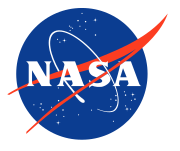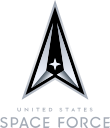
NASA
American space and aeronautics agency / From Wikipedia, the free encyclopedia
Dear Wikiwand AI, let's keep it short by simply answering these key questions:
Can you list the top facts and stats about NASA?
Summarize this article for a 10 years old
The National Aeronautics and Space Administration (NASA /ˈnæsə/) is an independent agency of the U.S. federal government responsible for the civil space program, aeronautics research, and space research. Established in 1958, NASA succeeded the National Advisory Committee for Aeronautics (NACA) to give the U.S. space development effort a distinctly civilian orientation, emphasizing peaceful applications in space science.[4][5][6] NASA has since led most American space exploration, including Project Mercury, Project Gemini, the 1968–1972 Apollo Moon landing missions, the Skylab space station, and the Space Shuttle. NASA currently supports the International Space Station and oversees the development of the Orion spacecraft and the Space Launch System for the crewed lunar Artemis program, the Commercial Crew spacecraft, and the planned Lunar Gateway space station.
 | |
 | |
| Agency overview | |
|---|---|
| Abbreviation | NASA |
| Formed | July 29, 1958; 65 years ago (1958-07-29) |
| Preceding agency |
|
| Type | Space agency Aeronautics research agency |
| Jurisdiction | United States Federal Government |
| Headquarters | Washington, D.C. 38°52′59″N 77°0′59″W |
| Bill Nelson | |
| Deputy Administrator | Pamela Melroy |
| Primary spaceports | |
| Employees | 17,960 (2022)[2] |
| Annual budget | |
| Website | www |
| Part of a series on the |
| United States Space Program |
|---|
  |
|
Human spaceflight programs |
|
National security space |
NASA's science is focused on: better understanding Earth through the Earth Observing System;[7] advancing heliophysics through the efforts of the Science Mission Directorate's Heliophysics Research Program;[8] exploring bodies throughout the Solar System with advanced robotic spacecraft such as New Horizons and planetary rovers such as Perseverance;[9] and researching astrophysics topics, such as the Big Bang, through the James Webb Space Telescope, and the Great Observatories and associated programs.[10] NASA's Launch Services Program provides oversight of launch operations and countdown management for its uncrewed launches.